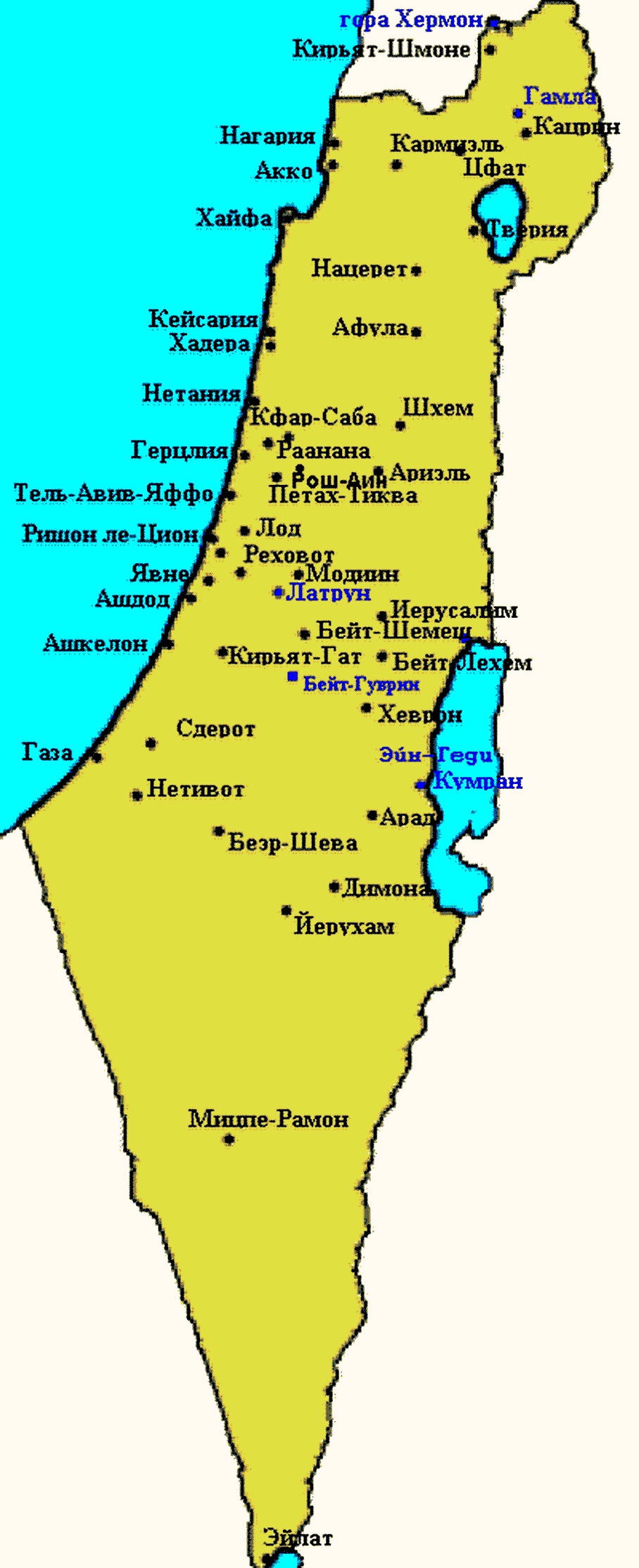Article 1. Right to repatriation:
Every Jew has the right to repatriate to the Country.
Article 2. Repatriate visa:
(aleph). Repatriation is carried out in accordance with the repatriate visa.
(bet). An immigrant visa will be issued to every Jew who has expressed a desire to settle in Israel, unless the Minister of the Interior is satisfied that the visa applicant:
- (1) Operates against the Jewish people; or
- (2) May constitute a danger to public health or the security of the state; or
- (3) Has a criminal record that may endanger public order.
Article 3. Identification of a repatriate:
(aleph). A Jew who arrived in Israel, and after his arrival expressed a desire to settle in it, has the right, while in Israel, to receive a certificate of a repatriate.
(bet). The restrictions specified in Article 2 (bet) apply to the issuance of a returnee's certificate, but a person will not be considered a danger to public health due to an illness that he contracted after arriving in Israel.
Article 4. Residents and natives:
Every Jew who immigrated to the Country before the entry into force of this law, and every Jew who was born in the Country both before the entry into force of this law and after, shall be considered as having repatriated under this law. א תר הכנסת 2
Article 4 Alef. Rights of family members:
(aleph). The rights of a Jew under this law, and the rights of a repatriate under the "Citizenship Law (1952)", as well as the rights of a repatriate in accordance with all other legislative acts, are also granted to the child and grandchild of a Jew, the spouse of a Jew and the spouse of children and Jewish grandson; except for one who was Jewish and voluntarily converted to another religion.
(bet). In determining eligibility for repatriation, it does not matter whether or not the Jew is repatriated to Israel or not, by virtue of whose rights the right to repatriation is claimed under subsection (alef).
(gimel). Restrictions or conditions imposed on a Jew or a repatriate in or on the basis of this law, or in the legislative acts referred to in subsection (alef), shall also apply to persons claiming the rights referred to in subsection (alef).
Article 4 bet. Definition:
For the purposes of this law, a "Jew" is one who is born of a Jewish mother or who has been converted and does not belong to another religion.
Article 5
The implementation of this law is within the competence of the Minister of the Interior, and he has the right to issue regulations regarding the implementation of this law, as well as to issue immigrant visas and immigrant certificates to minors under the age of 18 years. Regulations on the issues of articles "4 aleph" and "4 bet" require approval by the Knesset Committee on Constitutional, Legislative and Justice matters.
*The original text of this law (in Hebrew) 1950-י"התש ,השבות חוק , including the two amendments to the law, is located on the Knesset website at http://main.knesset.gov.il/Activity/Legislation/Laws/Pages/ LawPrimary.aspx?t=lawlaws&st =lawlaws&lawitemid=2000587 - and only this Hebrew text, including both amendments to this law, is the complete, official, binding and legally valid text of this law of the State of Israel.
Translation: © Knesset website in Russian
Suppose you suddenly found out that there is a possibility of repatriation to Israel. Why "suddenly"? Yes, because in our experience there are examples when people learn about the possibility of repatriation quite suddenly. Suppose, hypothetically, a person knows that his grandfather is a Jew (or was a Jew, if the grandfather died long ago). Does such a person have the right to immigrate to Israel? Our answer: yes, it does! In order to properly exercise this right, you need to know some things that will be discussed in this article.
So, it should be remembered that in Israel there is a “Law of Return”, which was adopted in 1950. According to him, everyone who among the relatives of the first circle up to the third generation has a person with the nationality "Jew" has the right to repatriation (return to their historical homeland) to Israel.
Here it is necessary to understand a little more. Everyone knows that the Jews are one of the few (if not the only) people whose nationality is transmitted through the maternal line. That is why many people think that there are no opportunities for repatriation if the “Jewish blood” goes through the male line. Actually it is not. According to the Law, EVERYONE who has one of the Jews up to grandparents has the right to repatriation. And he's not the only one!
This law is quite loyal, and, according to it, not only those who have Jewish relatives, but also those who are legally married to them, automatically receive the right to repatriate! Speaking specifically, the right to repatriation have:
- people whose birth certificate, or in any other document, in the column “nationality” says “Jew (“Jewish);
- people who have parents in whose documents in the column “nationality” it is written “Jew” (“Jewish”);
- people who have grandparents, in whose documents the column “nationality” says “Jew” (or “Jewish”)
- family members of the people listed above (with the exception of children of the 4th generation, if their age at the time of application is over 16 years old);
- widows or widowers of the people listed above, provided that after the death of the Jewish husband (or Jewish wife) there was no new marriage with people of a different nationality than Jews.
We believe that this information will be enough for most people. Only the situation with children of the fourth generation requires careful consideration. It should be understood that, unlike the people of the first three generations, they do not become citizens of the State of Israel when applying for documents at the airport, or at the Ministry of the Interior. They are also not subject to any benefits that repatriates receive. However, the State of Israel does not separate families, and children of the "fourth generation" under 16 years of age have no problems receiving all insurance, hospital care, the opportunity to attend kindergartens and schools, on an equal basis with Israeli citizens.
Moreover, they receive an individual number of the internal Israeli passport “teudat-zeuta”, which, however, unlike the “three generations”, is not issued immediately. In fact, instead of citizenship, they receive a residence permit, which imposes some restrictions, for example, there is no opportunity to vote and be elected, there are some difficulties in obtaining a visa to another country.
That is, it turns out that legally they are not citizens (for some time), but in fact they do not experience any difficulties on this issue. Over time, they will receive both “teudat-zeut” and “darkon” ( international passport of the State of Israel, which gives the right to travel without visas through the territory of more than 120 countries of the world).
The only serious obstacle that arises in the way of any repatriate who has Jewish relatives may be the religious affiliation of the repatriate. This is stated very clearly in the Law. We quote: “The rights granted to a Jew in accordance with this Law, and the rights of a new immigrant in accordance with the Citizenship Law of 1952, as well as the rights of a new immigrant in accordance with any other legislative act, belong also to the child and grandson of a Jew, his wife (spouse) , the spouse of the child and grandson of a Jew, with the exception of a person who, being a Jew, changed religion of his own free will.
Thus, entry as a repatriate is not possible if you are an adherent of a religion other than Judaism. There are no restrictions if you are an atheist or "non-religious" person.
Law of Return(Hebrew חוק השבות - “hok ha-shvut”) - a law proclaiming the right of every Jew to repatriate to the State of Israel. Adopted by the Knesset on July 5, 1950. This law legally expresses the ideological doctrine of Zionism, which underlies the emergence and existence of the State of Israel as a Jewish nation state. This law stimulates the return of Jews from the countries of dispersion to Israel.
The law of return is legal basis to grant Israeli citizenship under the Citizenship Law of 1952, which provides for automatic citizenship for every Jew who enters the country under the Law of Return.
The Law of Return does not apply to persons engaged or engaged in activities directed against the Jewish people, or posing a threat to public order and the security of the country. In practice, the latter category also includes persons who have committed crimes abroad and seek refuge in Israel from justice.
In connection with the mass repatriation from the former Soviet Union, which brought about 300,000 non-Halacha Jews to Israel, there has been repeated discussion in Israeli society about the need to revise the Law of Return in its current interpretation.
Article 1. Right to repatriation:
Every Jew has the right to repatriate to the Country.
Article 2. Repatriate visa:
(aleph). Repatriation is carried out in accordance with the repatriate visa.
(bet). An immigrant visa will be issued to every Jew who has expressed a desire to settle in Israel, unless the Minister of the Interior is satisfied that the visa applicant:
· (1) Operates against the Jewish people; or
(2) May constitute a danger to public health or the security of the State; or
· (3) Has a criminal record that may pose a danger to public order.
Article 3. Identification of a repatriate:
(aleph). A Jew who arrived in Israel, and after his arrival expressed a desire to settle in it, has the right, while in Israel, to receive a certificate of a repatriate.
(bet). The restrictions specified in Article 2 (bet) apply to the issuance of a returnee's certificate, but a person will not be considered a danger to public health due to an illness that he contracted after arriving in Israel.
Article 4. Residents and natives:
Every Jew who immigrated to the Country before the entry into force of this law, and every Jew who was born in the Country both before the entry into force of this law and after, shall be considered as having repatriated under this law. א תר הכנסת 2
Article 4 Alef. Rights of family members:
(aleph). The rights of a Jew under this law, and the rights of a repatriate under the "Citizenship Law (1952)", as well as the rights of a repatriate in accordance with all other legislative acts, are also granted to the child and grandchild of a Jew, the spouse of a Jew and the spouse of children and Jewish grandson; except for one who was Jewish and voluntarily converted to another religion.
(bet). In determining eligibility for repatriation, it does not matter whether or not the Jew is repatriated to Israel or not, by virtue of whose rights the right to repatriation is claimed under subsection (alef).
(gimel). Restrictions or conditions imposed on a Jew or a repatriate in or on the basis of this law, or in the legislative acts referred to in subsection (alef), shall also apply to persons claiming the rights referred to in subsection (alef).
Article 4 bet. Definition:
For the purposes of this law, a "Jew" is one who is born of a Jewish mother or who has been converted and does not belong to another religion.
Article 5
The implementation of this law is within the competence of the Minister of the Interior, and he has the right to issue regulations regarding the implementation of this law, as well as to issue immigrant visas and immigrant certificates to minors under the age of 18 years. Regulations on the issues of articles "4 aleph" and "4 bet" require approval by the Knesset Committee on Constitutional, Legislative and Justice matters.
). Adopted by the Knesset on July 5, 1950. The Law of Return legally expresses the centuries-old desire of the Jewish people to return to Eretz Israel. The Law of Return is the legal basis for obtaining Israeli citizenship under the Citizenship Law of 1952, which provides for the automatic granting of citizenship status to every Jew who enters the country under the Law of Return. The law does not apply to persons who have engaged or are engaged in activities directed against the Jewish people, or who pose a threat to public order and the security of the country. In practice, the latter category also includes persons who have committed crimes abroad and seek refuge in Israel from justice.
The Law of Return has given rise to a number of legal problems. The main one is the problem of establishing a criterion for recognizing a given person as a Jew: should this criterion coincide with the Halakha criterion, according to which a Jew is one who is born of a Jewish mother or converted to Judaism, or anyone who declares his or her identity can be recognized as a Jew? belonging to the Jewish people. In 1962, in the ruling on the claim of O. Rufeisen (brother Daniel), a Catholic monk, a Jew by birth, against the Ministry of the Interior, the Supreme Court ruled that, based on the secular nature of the Law of Return, the concept of "Jew" should be interpreted in the generally accepted, not in a strictly halachic sense, and therefore the Law of Return does not apply to persons born Jewish but converted to another religion (see Apostasy). In 1970, an amendment to the Law of Return was adopted, according to which a Jew is one who was born of a Jewish mother and did not convert to another religion, as well as a person who converted to Judaism (section 4b of the Law of Return); at the same time, the amendment provided that a non-Jewish spouse, children and grandchildren of a Jew receive the same civil status and enjoy the same rights and benefits as other repatriates, and “when determining the right of a Jewish family member to repatriation, it does not matter whether the Jew himself is alive, but also whether he is repatriated to Israel” (section 4a of the Law of Return).
In solidarity with the struggle of Soviet Jews for repatriation to Israel, the Knesset passed in May 1971 an amendment to the Law of Return, on the basis of which any Jew outside the State of Israel can, if desired, acquire Israeli citizenship.
The definition of a Jew as formulated in the 1970 amendment to the Law of Return leaves open to various interpretations the question of whether only conversion to Judaism in accordance with the prescriptions of the Halakha within the Orthodox sect (see Orthodox Judaism) is legally valid, or also the conversion, done under the direction of Conservative and Reform rabbis (see Reformism in Judaism, Conservative Judaism). In connection with the mass aliyah from the former Soviet Union, when about 300,000 non-Jews according to Halakha came to Israel, the issue of the need to revise the Law of Return in its current interpretation was repeatedly discussed in Israeli society. In addition, the fact that such a significant legal act, which is the most striking expression of the ideology of the State of Israel, does not have the status of the Basic (constitutional) law, which has twelve other laws in force in the country, is criticized.
Repatriation to Israel is the most popular option for immigrating to a state located in Southeast Asia. Repatriates not only live and work in the country, but also automatically receive Israeli citizenship. The repatriation procedure is quite simple. But only persons of Jewish origin and their immediate family members have the right to it.
In the 21st century, repatriation to Israel does not slow down. Located on mediterranean coast the republic attracts Jewish emigrants from all over the world. Returning to the historical homeland of the ancestors is a simple procedure. The main thing is to confirm Jewish roots with relevant documents.

Repatriation is the return to one's homeland. The repatriation of Jews to Israel is called Aliya. It is carried out under the law "On return" and occurs with the restoration of citizenship rights.
In the 20th century, Aliya was associated with mass oppression (and during the Second World War - with the destruction) of the Jewish people. Now repatriation to Israel is peaceful. For example, migration from Russia comes mainly from peripheral cities with low level life. In search of a better life, residents of the Ukrainian regions also go to the Promised Land.
Immigration steps
Emigration to the coastal state under the repatriation program takes place according to a single principle. Potential repatriates from the Russian Federation and Ukraine perform the following actions:
- They study their ancestry to make sure they have a Jewish relative. We are talking only about relatives in a straight ascending line up to the third knee.
- Gather a package of documentation to confirm Jewish origin.
- Make an appointment with the Israeli diplomatic mission in the country of residence.
- They bring the necessary papers to the diplomatic mission and undergo an interview.
- With a positive result, they receive a visa for leaving for permanent residence.
- They go to a Middle Eastern state, where they begin new life. Repatriates in Israel immediately acquire the status of a citizen. That is, they receive the same rights as the natives.

The procedure for leaving the country takes from six months to 2 years or more.. In case of a negative decision, it is allowed to re-apply. But not earlier than 6 months after the previous refusal.
Who is eligible for repatriation to Israel
Descendants of Jews up to the third generation (children, grandchildren) and members of their families are allowed to leave for a Middle Eastern country under the law of return. The main repatriate will need to document that he has or had a parent or grandparent of Jewish nationality. It is important to remember that nationality is transmitted through the mother. But the children and grandchildren of Jews, even on the paternal side, have the right to Aliyah.

Thus, with full right to start the process of repatriation to Israel, applicants can:
- In the birth certificate or other documents of which the nationality "Jew / Jewess" is indicated. It is allowed to include the spouse and children in the application for repatriation.
- In the documents of the parents / parent of which the nationality "Jew / Jewess" is indicated. At the same time, the family relationship "parents / parent - applicant" was confirmed. It is allowed to include the spouse and children in the application for repatriation.
- The documents of the grandparents of which indicate the nationality "Jew / Jewess". At the same time, the family relationship "grandmother / grandfather - parents / parent - applicant" was confirmed. It is allowed to include the spouse in the application for repatriation.
If the applicant's children are fourth-generation Jews only through their great-grandfather, they do not receive the status of repatriates. But they have the right to enter Israel with their parents and live without Israeli citizenship until the age of 18. Citizenship is granted to them upon reaching the age of majority upon renunciation of the citizenship of the country of origin.

Documentation
Candidates for departure to Israel under the repatriation program submit:
- Statement.
- All available passports. In this case, you should check in advance the validity of the passport - at least six months at the time of issuing the visa.
- Passport photos:
- 1 for each expat, including infants.
- Colored.
- 30 by 40 mm. (for Russians).
- 50 by 50 mm. (for Ukrainians).
- Evidence (strictly in the original):
- About birth (of the main applicant and all emigrating relatives).
- About the marriage of mother and father.
- About the birth of the mother.
- About the birth of the father.
- About the birth of a grandfather / grandmother, belonging to the Jewish nationality.
- About the marriage of the grandfather and grandmother of a Jewish parent.

- If Jewish roots are not fully confirmed by birth certificates (for example, there is no “nationality” column), you should confirm the origin with other papers:
- Soviet passport or other identification card.
- Military ticket of the old sample.
- Extracts from house books.
- Extracts from parish synagogue books.
- Other archival documents.
- Labor books (originals).
- Certificates from all educational institutions where the main applicant and his relatives studied (originals are submitted).
- Military tickets (originals).
- If a repatriate relative lives in Israel, the main documents for him are submitted. They indicate:
- Exact date of repatriation.
- Numbers of ID cards obtained in Israel.
- Home address.
- Phone number.
An important rule applies when applying for repatriation to Israel. No paper, even if it seems insignificant to applicants, will not be superfluous. Any family or archival document can have a positive impact on the fate of the petition.
Therefore, applicants will need:
- Various old certificates and extracts indicating the nationality of parents / grandparents.
- Old decisions of judicial or other instances.
- Documents from places of study and employment (certificates, diplomas, thanks, etc.).
- Personal letters.
- Family photos, etc.

It is worth adding that a certificate of non-conviction is not in the list of mandatory documentation indicated on the website of the Israeli embassy. However, in practice, it may be asked to be added to the package of submitted papers. At the same time, the presence of a criminal record will not necessarily become an obstacle in the process of repatriation. Everything is decided individually in each specific case, since there are no clear criteria prescribed in Israeli law.
Visit to the diplomatic mission
Where to go
The collected certificates and certificates are submitted personally to Israeli diplomatic missions abroad. Documents will not be accepted by email or otherwise. Appointments must be made strictly by appointment. Registration is carried out by phone numbers of diplomatic departments.
 The Israeli embassy in Moscow is located on Bolshaya Ordynka, 56
The Israeli embassy in Moscow is located on Bolshaya Ordynka, 56 Immigrant Russians carry papers to the repatriation department of the Israeli embassy in Moscow. However, for residents of regions remote from the capital, there is another opportunity. They can wait for the arrival of the consul in their region. Working trips to big cities the consul conducts 1 time in several months. It is also necessary to register for such a meeting in advance by calling the embassy.
Residents of Ukraine submit documentation to the diplomatic mission on the territory of their republic. Diplomatic institutions are located:
- In Kyiv.
- In Dnepropetrovsk.
- In Odessa.
- In Kharkov.
Who to go
When submitting an application and related documents, the personal presence of all repatriates is required. Each family member planning to emigrate to Israel is required to personally visit the embassy/consulate. Exceptions are not made even for small children.
The nuances of a visit
It is worth considering that only folders with papers and personal valuables (phones, money, keys, etc.) are allowed to be brought into the buildings of diplomatic missions. It is forbidden to take with you:
- Beverages.
- Food.
- Medicines.
- Bags (including compact or ladies).
- Other things.

What is asked in an interview
Interviews with repatriates are not a formality, but a serious procedure. Approach it with full responsibility. The questions span the life of the candidates. But first of all, potential Israeli citizens are checked for:
- Reasons for immigrating to Israel
- Compliance of motives and goals with the Law of Return.
- previously provided data.
- Personal plans after entry and in the long term.
- Attitude towards religion, etc.
Particular attention should be paid to the last point. Repatriates who are Jewish by mother, verbally and when filling out the questionnaire, confirm that they profess Judaism. If they voluntarily converted to Christianity, they will be denied repatriation. This does not apply when a person is an atheist. Also, any religion has the right to profess repatriates whose Jewish relative is the father, not the mother.
Obtaining a permanent residence visa
Citizens whose application has been approved by the consul are issued visas to travel to permanent place residence. The document is valid for six months. You must fly to Israel before the expiration of this period.
The visa will be glued into the passport. Before that, the passport should be stamped "For living abroad".

Departure to Israel
As a rule, even at the stage of preparing documents, repatriates turn to the Jewish Agency (Sokhnut) for help. It has branches in many Russian and Ukrainian cities. When moving to Israel, the help of this structure is very important.

Employees of the organization help all persons leaving under the law "On return" on a gratuitous basis. Emigrants are provided with:
- Flight in an organized group.
- Free plane tickets.
- Transportation to the airport (if necessary).
- Arrival meeting.
- Assistance with registration of documents upon arrival.
- Initial support (including assistance in finding a job).
The initial stage of life in Israel
Upon arrival in the republic, repatriates are subjected to additional checks. Then the new residents of Israel are given:
- internal passport.
- "Lifting" money.
- Free sim card.
- Medical guarantees (registration in the health insurance fund).

Immigrants under the repatriation program are financially supported for six months. After 1 year of residence, they have the right to obtain an Israeli passport. Based on this document, citizens will be able to:
- Enter/leave a Middle Eastern state.
- Visit home.
- Travel around the world.
- Without visas to be in the territory of about 100 countries.
Who else has the right to emigrate to Israel
- Employed on a permanent basis foreigners.
- Refugees.
- Israeli spouses.
- Lonely elderly people whose children or grandchildren live in a coastal state.
Emigration of the elderly
Single pensioners have the right to move to Israel if their daughters / sons / grandchildren are legally and permanently in the territory of the republic. Main entry requirements:
- Age Compliance:
- Men over 64 years of age.
- Women are over 62 years old.
- Confirmation that children/grandchildren are ready to accept them.
- Elderly people should not have other close relatives other than those who live in a Middle Eastern state.
The popularity of repatriation to Israel is not decreasing. In 2016 alone, almost 30,000 repatriates arrived in the Promised Land. Over a third of them are from Russia and Ukraine. And there is no doubt that in 2017 the migration figures under the Law of Return will remain at the same level.




